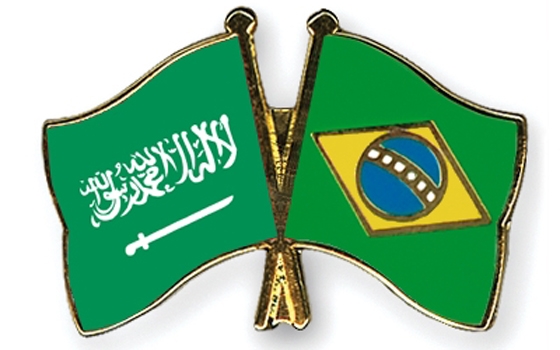Sales of Brazilian products to the Arab market rose 0.96 percent in the first five months of the year as against the same period last year, figures disclosed by the Ministry of Development, Industry and Foreign Trade and compiled by the Arab Brazilian Chamber of Commerce revealed.
The increase was small as the country's exports to the region fell 17.57 percent in May.
The product that generated most foreign currency to the country was meat, followed by sugar, ores and grain. In May alone, the ranking was also led by meat, followed by sugar, ores and machinery.
The Arab country that bought most goods from Brazil in the first five months of the year was Saudi Arabia, with $1.2 billion, followed by the United Arab Emirates, with $978 million, and then Egypt, with $808.9 million. In May, the Saudis were also first on the list, with $288.5 million, the Egyptians came in second position, with $213.7 million, and the Emirates in third, with $166 million.
"There was a drop in prices of many products, specially food, reflected in the overall result for May," director-general at the Arab Brazilian Chamber Michel Alaby said. In volume, there was an increase of 7.43 percent in sales to the Arab world from January to May, with a 12.7 percent drop last month. From January to May, Brazilian exports to the Arabs generated revenues of $ 5.58 billion. In May, they totaled $1.04 billion.
In May, products like sugar and livestock presented a decline in prices. Lower volumes of items, like ores, meats, inorganic chemicals, grain, oleaginous seeds and fruit were also shipped. All, except for meats, had lower sales revenues. Meat exports grew 11.67 percent in turnover.
Alaby however said it is still too early to know how the performance of Brazil's exports to the Arabs in the year will turn out due to the economic changes underway in the country and in the international market. Dollar appreciation brings more competitiveness to Brazil's exports, he noted, but at the same time there is a tendency for decline in commodity prices, which can nullify the effect of the appreciated US currency. There is also growing inflation in the country and, if domestic prices are more attractive than external ones, Alaby believes that companies will prefer to sell on the domestic market.
Brazilian imports of Arab products, nonetheless, have been growing more. In the first five months of the year, they have grown 8.95 percent over the same period in 2012, to $4.9 billion. Fuel led the ranking, with $3.9 billion, and fertilizers came in second, with $270 million. In May alone, imports from the Arab countries grew 37.17 percent to $1.5 billion. The products topping the list are the same.
The Saudi Gazette
3 July























































